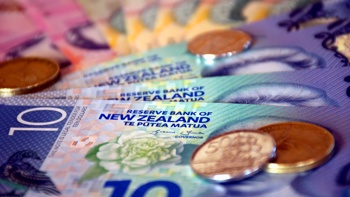International oil prices are only partly to blame for the record high cost of petrol.
KPMG’s Head of Energy and Natural Resources Industry Greg Bishop told Chris Lynch increases in GST and excise duties have also been driving the price up.
"In terms of pump price, international price only plays a small part of it. If you look at where fuel prices have been historically, if you go back 10 years, they were significantly more than they are now."
However, the price of 91 octane fuel hit $2.30 per litre at some petrol stations today, the most it's ever cost in New Zealand.
Consumer New Zealand’s Sue Chetwin says record high petrol prices could backfire on fuel companies if nothing is done to bring them down, as fed-up motorists may simply opt for public transport, biking, or walking if filling the tank up became too expensive.
"Prices going up so strongly is not good from a consumer perspective, but it might encourage people to think differently about their transport."
Chetwin was in favour of the proposal to give the Commerce Commission extra powers to investigate collusion among petrol companies.
That would make discovering whether uncompetitive practices by fuel companies were behind price rises easier, Chetwin said.
She used last month's example of a leaked BP email lifting the lid on the company's pricing strategy in Ōtaki.
In the email obtained by Stuff, BP pricing manager Suzanne Lucas outlined a plan to counter dwindling sales in Ōtaki by increasing the fuel price across the entire region, with the expectation that competitors would match the new price.
But it wasn't only companies affecting fuel price - the Government also had the power to bring prices down, the AA's Mark Stockdale said.
Taxes, including a nearly 60c per litre excise, made up a large chunk of fuel prices, something many motorists may not realise, he said.
Stockdale wanted the Government to stop charging GST on fuel excise, a move which would see prices drop 10c a litre immediately.
Investigations into the industry would take time, and motorists wanted something done now to quell worries prices would simply keep rising, he said.
According to figures from the Ministry of Business, Innovation and Employment, the total duties and taxes added to each litre of petrol was nearly 66.5c, including a 60c excise and an ACC levy.
Currently the Government charges GST on the lot - a practice Stockdale said amounted to "taxing a tax".
"The AA thinks it's unfair, our members think it's unfair."
However, the Government has shown no willingness to reduce tax on petrol.
Asked if the Government would look at the fuel taxes in light of the increase, Finance Minister Grant Robertson said the focus was ensuring anti-competitive behaviour was not contributing to ratcheting up the price.
According to AA figures the price of 91 has risen by nearly 20 cents a litre since January, when it was 212.9c a litre.
And further rises of up to $3 a litre are "not out of the question", according to Ken Shirley of the Road Transport Forum NZ.
Take your Radio, Podcasts and Music with you









